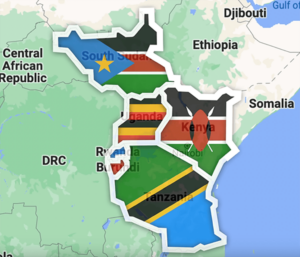Introduction
Starting a trucking business in Ghana isn’t just about transporting cargo from point A to point B—it’s about seizing the opportunity to be a vital link in the nation’s economic chain. It’s about carving your path through the rich tapestry of Ghana’s landscapes, from the bustling markets of Kumasi to the bustling ports of Tema and Takoradi.
But how does one embark on this exhilarating journey? How does one turn a vision of a trucking empire into a reality in the heart of West Africa?
Buckle up and prepare for an adventure filled with insights, challenges, and triumphs as you embark on the exhilarating journey of launching a trucking business in Ghana. The road ahead may be long, but with the right tools, determination, and a sprinkle of Ghanaian ingenuity, there’s no limit to what you can achieve.
1. Market Research and Analysis:
Conduct comprehensive market research to understand the demand for trucking services in Ghana. Analyze factors such as the types of cargo being transported, popular routes, existing competitors, and potential clients. Identify niche markets or underserved areas where your trucking business can thrive.
Accra, as the capital city of Ghana, is a bustling hub of economic activity with a high demand for trucking services. Its strategic location on the coast and status as a major commercial center make it an ideal location for transporting goods to and from the country’s ports. Additionally, Accra’s growing population and expanding industries create opportunities for trucking companies to cater to diverse transportation needs, including construction materials, consumer goods, and industrial products.
Bolgatanga, situated in the Upper East Region, is known for its vibrant marketplaces and agricultural activities. Trucking businesses in Bolgatanga can specialize in transporting agricultural produce such as maize, millet, sorghum, and shea nuts to markets in other regions of Ghana and neighboring countries. With the government’s focus on promoting agribusiness and rural development, there is a growing demand for transportation services to support the movement of agricultural commodities and value-added products.
Gather data on industry trends, economic indicators, and regulatory changes that may impact the transportation sector in Ghana.
2. Develop a Business Plan:
Create a detailed business plan that outlines your goals, target market, competitive analysis, marketing strategy, operational plan, and financial projections. Define your unique selling proposition (USP) and how you plan to differentiate your trucking business from competitors.
Determine the size and composition of your fleet, staffing requirements, and investment needs. Your business plan should serve as a roadmap for your trucking venture and guide decision-making as you launch and grow your business.
3. Legal and Regulatory Compliance:
Ensure your trucking business complies with all legal and regulatory requirements in Ghana.
- Business Registration:
Register your trucking business with the Registrar General’s Department (RGD) in Ghana. This involves choosing a business name, completing the necessary registration forms, and paying the applicable registration fees. Registering your business provides legal recognition and establishes your company as a separate legal entity, which is essential for conducting business activities, entering contracts, and obtaining licenses and permits.
- Tax Registration:
Register your trucking business with the Ghana Revenue Authority (GRA) for tax purposes. This includes obtaining a Taxpayer Identification Number (TIN) and registering for the appropriate taxes, such as corporate income tax, value-added tax (VAT), and withholding tax. Complying with tax regulations is crucial for maintaining good standing with the tax authorities and fulfilling your tax obligations as a business owner.
- Transportation Permits:
Obtain necessary permits and licenses for operating a transportation business in Ghana. This includes permits for transporting goods, passenger transportation, and special transportation services such as oversized or hazardous cargo. Depending on the nature of your trucking business and the types of cargo you transport, you may need specific permits from regulatory agencies such as the Ghana Highway Authority (GHA) or the National Road Safety Authority (NRSA).
- Vehicle Registration and Licensing:
Register your trucks with the Driver and Vehicle Licensing Authority (DVLA) in Ghana. This involves submitting vehicle registration documents, proof of ownership, and vehicle inspection reports to obtain registration plates and certificates of vehicle ownership. Ensure your trucks meet safety standards, roadworthiness requirements, and emission standards prescribed by the DVLA to operate legally on Ghana’s roads.
- Compliance with Regulations and Standards:
Comply with transportation regulations, safety standards, and environmental guidelines set forth by regulatory authorities in Ghana. This includes adhering to speed limits, weight restrictions, and driver qualifications prescribed by the National Road Safety Authority (NRSA) and the Motor Traffic and Transport Department (MTTD) of the Ghana Police Service.
Ensure your trucks are equipped with safety features such as seat belts, reflective markings, and warning signs to prevent accidents and protect road users. Additionally, comply with environmental regulations governing emissions, waste disposal, and pollution control to minimize the environmental impact of your trucking operations.
4. Fleet Acquisition and Maintenance:
Acquire trucks that are suitable for the type of cargo you intend to transport. Consider factors such as size, capacity, fuel efficiency, and maintenance costs. Decide whether to purchase trucks outright, lease them, or enter into partnerships with truck owners. Develop a fleet management plan to ensure your trucks are well-maintained and serviced regularly. Implement preventive maintenance measures to minimize downtime and maximize the lifespan of your fleet.
5. Recruitment and Training of Drivers:
Hire experienced and licensed truck drivers who are familiar with Ghana’s road networks and regulations. Conduct thorough background checks to verify driving records, criminal history, and professional qualifications. Provide comprehensive training on safety protocols, cargo handling procedures, defensive driving techniques, and company policies. Emphasize the importance of professionalism, punctuality, and customer service in delivering a positive experience to clients.
6. Establish Relationships and Network:
Build relationships with suppliers, manufacturers, freight brokers, and potential clients in the trucking industry. Attend industry events, trade shows, and networking forums to connect with key stakeholders and learn about market trends. Join professional associations such as the Ghana Institute of Freight Forwarders (GIFF) or the Ghana Road Transport Coordinating Council (GRTCC) to access resources, training programs, and business opportunities. Cultivate a reputation for reliability, integrity, and excellence in service delivery to attract and retain clients.
7. Marketing and Promotion:
Develop a marketing strategy to promote your trucking services and attract customers. Create a professional website that showcases your services, fleet capabilities, and customer testimonials. Utilize social media platforms such as Facebook, LinkedIn, and Twitter to engage with potential clients and share industry news. Invest in online advertising campaigns targeting businesses in need of transportation services.
Partner with complementary businesses such as logistics companies or freight forwarders to expand your reach and generate referrals. Offer promotional discounts or incentives to encourage repeat business and word-of-mouth recommendations.
8. Operational Efficiency and Technology:
Implement systems and technology to streamline operations and enhance efficiency in your trucking business. Invest in GPS tracking systems to monitor the location and movement of your trucks in real-time. Utilize fleet management software to optimize routes, schedule deliveries, and track fuel consumption.
Equip your trucks with onboard computers and electronic logging devices (ELDs) to record driver hours, vehicle inspections, and compliance with regulatory requirements. Embrace digitalization and automation to reduce paperwork, minimize errors, and improve communication between drivers, dispatchers, and clients.
9. Financial Management and Sustainability:
Manage your finances effectively to ensure the long-term sustainability of your trucking business. Keep accurate records of income and expenses, monitor cash flow, and prepare financial statements regularly. Budget for operating costs such as fuel, maintenance, insurance, and personnel expenses. Set aside funds for contingencies such as vehicle repairs, accidents, or fluctuations in fuel prices.
Invest in insurance coverage for your trucks, cargo, and liability to mitigate risks and protect your business assets. Seek professional advice from accountants, financial advisors, or business consultants to optimize your financial management practices and maximize profitability.
10. Expansion and Growth Strategies:
As your trucking business matures, explore opportunities for expansion and growth in the Ghanaian market. Consider diversifying your services to cater to new industries or specialized cargo types. Expand your fleet size or geographic coverage to reach more clients and increase market share. Explore strategic partnerships or alliances with other transportation companies to offer complementary services or enter new markets.
Invest in technology upgrades or infrastructure improvements to enhance operational efficiency and service quality. Continuously monitor industry trends, customer feedback, and competitive dynamics to adapt your business strategy and maintain a competitive edge in the evolving transportation sector.
Summary
Starting a trucking business in Ghana requires careful planning, execution, and perseverance. By conducting thorough market research, complying with regulations, investing in fleet and technology, and building strong relationships, you can establish a successful trucking venture that contributes to Ghana’s economic development and infrastructure.

















